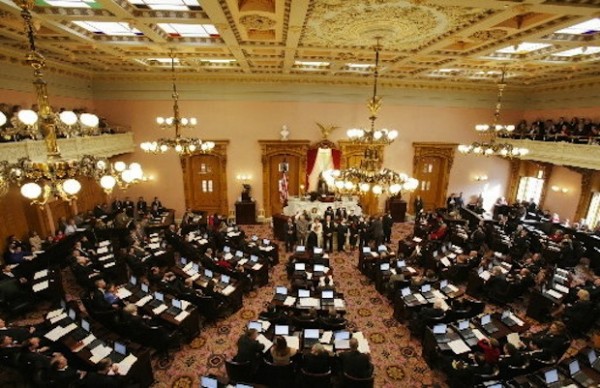Bipartisan Cooperation Reduces Ohio Drug Penalties


In a bipartisan effort to abate overcrowding in state prisons, Ohio’s Senate Bill 337 went into effect last week, reducing Ohio drug penalties and giving convicted felons a second chance at employment.
The measure, which was signed into law by Gov. John Kasich (R) and sponsored by Sen. Shirley Smith (D) and Sen. Bill Seitz (R) last June, was overwhelmingly approved by both houses of the General Assembly.
The primary purpose of the legislation is to eliminate some of the employment barriers that individuals with criminal records are faced with, as well as to reduce penalties for victimless crimes.
The bill reduces the penalties for possession of drug paraphernalia for the purpose of using marijuana from a fourth-degree misdemeanor to a minor misdemeanor. This legally equates possession of drug paraphernalia to possession of marijuana itself.
Rep. Tracey Maxwell Heard, (D), who sponsored the bill in the House, said that it is a prime example of what legislators can achieve when they put partisan politics aside:
“Who knew Democrats and Republicans could work together—and on something that is considered heavy-lifting, you have to do legislation like this in a bipartisan manner because if not, we’re just throwing someone under the bus for being soft-sided on crime.”
The bill also affects 1.9 million Ohioans with criminal records. Convicted felons who are subject to collateral sanctions now have the ability to petition for a “certificate of qualification,” which will give them access to some occupational licenses that were previously unavailable. It will allow also individuals to seal two misdemeanors, or one felony and one misdemeanor.
There are more than 49,000 inmates in Ohio prisons and this legislation would help prevent those who are not yet hardened criminals from becoming institutionalized.
Legislative Liaison for the Ohio Department of Rehabilitation and Correction Scott Neely said he thinks the bill was passed with nonpartisan support because, after a decade of Republicans passing “tough-on-crime” legislation, Ohio’s prisons cannot sustain either the inmate population or the costs such a population requires:
"This required bipartisan support because most human beings believe in second chances. Something had to give."
James Kosta, a gas station attendant and a felon convicted, said he’s eager to see the legislation go into effect:
“When I was 24 I lost custody of my daughter after a child support spat. After a few months of missing her terribly, I decided to visit her without permission. I was charged with kidnapping and was immediately unemployable ... I’m stuck at a dead-end job as a result.”



